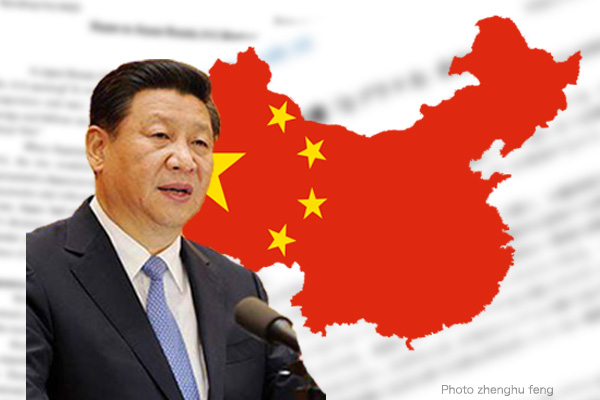China has officially applied to join the Comprehensive and Progressive Agreement for Trans-Pacific Partnership (CPTTP). The action had been expected since Chinese President Xi Jinping’s positive statement about the accession in November 2020. China may aim to lead Asian economic order by using China’s huge market as a weapon, undermine the U.S.-led coalition against China and publicize its appeal against protectionism. Beijing apparently believes that the U.S. Biden administration gives less priority to its trade strategy and would do nothing to block the Chinese action.
The application at this timing indicates Beijing’s crafty calculations regarding the CPTPP accession process. The CPTPP Commission is to decide, unanimously in principle, whether to start negotiations with any applicant to join the trans-Pacific free trade agreement. In practice, however, the CPTPP Commission chair takes leadership in making such decision. Set to replace Japan as the CPTPP chair next year is Singapore that reportedly has lost no time in welcoming the Chinese application.
China’s reasons for hurrying up with the application may also include a Taiwan factor. Taiwan has been acting proactively to join the CPTPP. There may have been a diplomatic consideration to file the application ahead of Taiwan while exerting pressure on CPTPP members to forestall Taiwan’s accession. In response to the Chinese action, Taiwan should promptly file its application.
High hurdles to and loopholes for China’s accession
How should Japan and other CPTPP members respond to the Chinese application? A dominant view is that they should find out the extent to which China is prepared to abide by high CPTPP standards for trade and investment liberalization. The Xi regime that is tightening economic control should never accept dramatic domestic reforms. But it is dangerous to assume that China would never be allowed to accede to the pact.
It is true that the CPTPP sets out high standards for liberalizing trade and investment, including those that China would be reluctant to accept. For instance, they include a ban on preferential treatments for state-run enterprises, transparency and fairness of data distribution, and the principle of non-discrimination in government procurement.
Even though CPTPP standards for liberalization are tough as shown by pact provisions, China apparently thinks it could take advantage of loopholes to join the CPTPP. In one loophole, China would win exceptions for national security reasons. In another loophole, China would get exceptions through bilateral negotiations with each CPTPP member. China has apparently concluded that it could win over each CPTPP member through negotiations.
Japan had wanted to prevent China from filing the application until the U.S. comes back to the pact. But the U.S. Biden administration views the current CPTPP as insufficient and is poised to add conditions for the comeback in such fields as environment and labor. This attitude is unlikely to change. Regrettably, the U.S.’ comeback to the pact cannot be expected for the time being.
Japan should retain principles and flexible thinking
In response to the Chinese application, Japan should hold fast to retaining high CPTPP standards without compromising regarding principles. It is important for Japan to keep this attitude unwavering. As a matter of course, China would take advantage of its vast market to exert pressure on Japanese business leaders and politicians.
At the same time, however, Japan should refrain from depending on wishful thinking or from giving up thinking. It is important to prepare plan B.
It is inconceivable that the U.S. would do nothing in response to the Chinese application to join the CPTPP. If the U.S. refuses to come back to the pact, a strategy to create a new framework without clinging to the CPTTP could be considered. Japan should eye such possibility as well.
Masahiko Hosokawa is a professor at Meisei University and a former director-general of the Trade Control Department at Japan’s Ministry of Economy, Trade and Industry. He is also a Planning Committee member at the Japan Institute for National Fundamentals.


